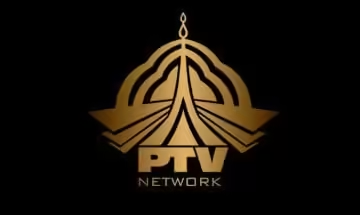The government has decided to eliminate approximately one in every four positions at Pakistan Television Corporation (PTV) to help reduce the organization’s losses. Additionally, a new business plan for the state-run entity has been approved.
On Friday, the Ministry of Information informed the Cabinet Committee on State-Owned Enterprises (CCoSOEs) of the decision to cut 1,232 out of 5,442 sanctioned posts, which accounts for a 23% reduction in the corporation’s workforce.
“The committee was informed that 1,232 positions were abolished from the 5,442 sanctioned posts to help reduce costs,” according to a press release from the Ministry of Finance.
The meeting, chaired by Finance Minister Muhammad Aurangzeb, also saw the approval of business plans for both PTV and the Pakistan Broadcasting Corporation (PBC).
It was revealed that PTV News, the news division of the corporation, fell short of its projected profits, incurring higher-than-expected expenses during FY2023-24. The provisional income of Rs200 million was far below the Rs357 million budgeted, while expenses surged to Rs688 million, exceeding the Rs585 million budget.
The committee was informed that PTV currently employs 95 anchorpersons.
The Ministry of Finance mentioned that the Ministry of Information had submitted a revival plan for PTV, focusing on strategies like digital expansion, content licensing, profitable marketing partnerships, public-private collaborations, and optimizing PTV properties to enhance operational efficiency and revenue generation.
The committee discussed the business plans for both PTV and PBC, stressing the importance of operational excellence and the timely implementation of actions to achieve the desired results.
Additionally, the committee recommended that the Ministry of Information, through the administrative boards of PBC and PTV, explore ways to utilize unutilized assets, favoring private-sector sales of these assets over real estate activities that could distract from the primary role of state broadcasters.
The business plans also include suggestions for increasing revenue, securing sponsorships, and cutting operational costs.
However, the committee was informed of challenges identified through a PESTLE analysis, a tool used to assess external factors influencing business strategies. As a state-run broadcaster, PTV is subject to government oversight, which can alter content and organizational priorities. Unlike private channels, PTV’s public service mandate limits its advertising revenue, impacting profitability.
Despite these hurdles, Pakistan has over 90 million TV viewers, and TV advertising spending reached Rs50 billion in FY2023-24, up from Rs43.4 billion in the previous year. In contrast, digital media advertising spending dropped to Rs25.25 billion in FY2023-24 from Rs26.5 billion the year before, according to the Ministry of Information.
For PBC, the business plan focuses on boosting income through improved programming, enhanced signal quality, and the use of seven large unused spaces and six vast tracts of land in different cities. Proposed measures include placing ATM booths and advertising billboards at key Radio Pakistan locations.
The committee was informed that PBC could achieve financial self-sufficiency within two years of implementing the plan, according to the Ministry of Finance.
In addition to the broadcaster business plans, the committee approved the reconstitution of the Board of Directors for the Karachi Tools, Dies, and Mould Centre (KTDMC) under the Ministry of Industries and Production. The CCoSOEs approved the appointment of five private-sector candidates and ex-officio directors for a three-year term, with Abdur Razaaq Gauhar serving as the Board’s Chairman. This reconstitution aims to improve corporate governance and ensure effective decision-making.
The committee also approved the reconstitution of the Board of Directors for the Technology Upgradation and Skills Development Company (TUSDEC). Six private-sector candidates and ex-officio directors were appointed for a three-year term, with Muhammad Noorud Din Daud as Chairman. These changes are in line with the SOEs Ownership and Management Policy, 2023, to improve operational efficiency and align the company’s objectives with national priorities.





Its like you read my mind You appear to know so much about this like you wrote the book in it or something I think that you can do with a few pics to drive the message home a little bit but other than that this is fantastic blog A great read Ill certainly be back HABANERO88
Thank you so much for your kind words and thoughtful suggestion! I’ll definitely consider adding images to make the blog more engaging—it means a lot!
Your point of view caught my eye and was very interesting. Thanks. I have a question for you.